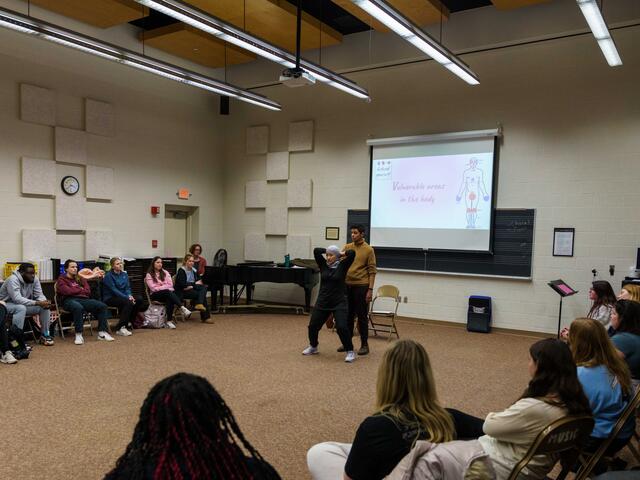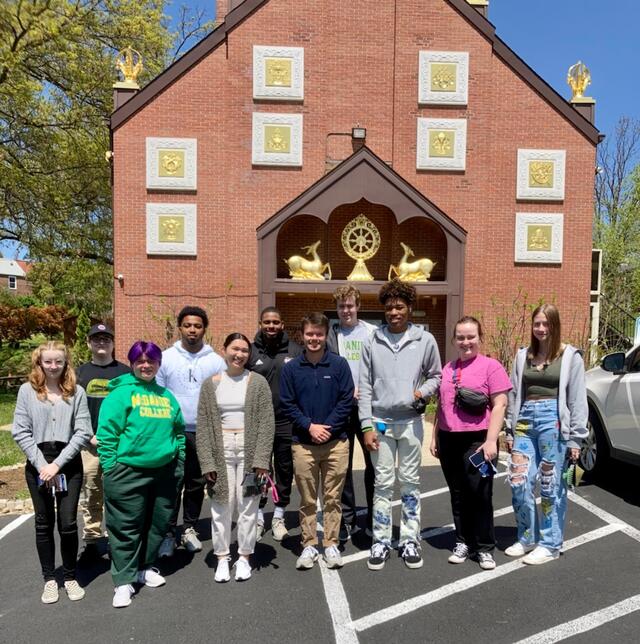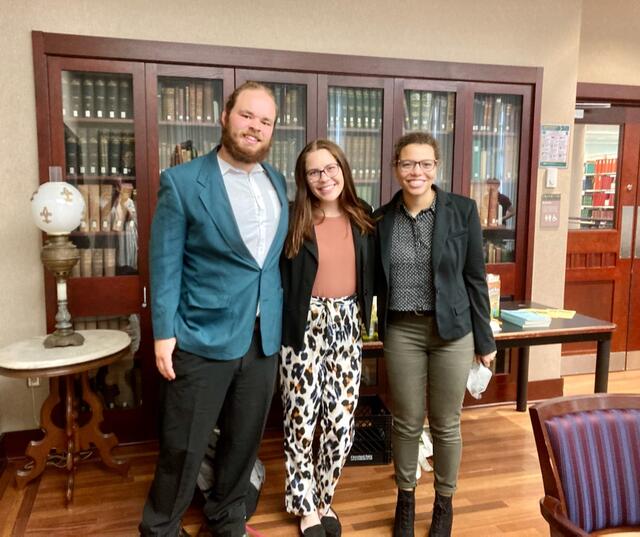Philosophy
Headphones on. Eyes closed. Thinking about the big questions: What is reality? What does it mean to be human? How should we treat each other? What are knowledge, justice, and love? If this describes you and the loop that keeps playing in your head, then you’ll be among friends as a McDaniel Philosophy major.
Mortarboard
Degree Types
Major,Minor
Institution
Complementary Programs
Heart
Distinctive Requirements
Thesis
Document
Post Graduate Opportunities
The McDaniel Commitment in Action
Philosophy Student Spotlights

Meet a Green Terror Class of 2024: Max Sweeney Political Science and Philosophy

Student Spotlight Class of 2025: Olivia “Kaami” Effa Political Science - International Studies Major

Students wrestle with the ‘Power of Pretty’ in experiential Philosophy class
In Associate Professor of Philosophy Elizabeth Tyler’s course The Power of Pretty, students grapple with the philosophy of beauty and femininity. Not just about abstract theories, the course has an energetic experiential learning component with self-defense lessons to put philosophy to the test.





